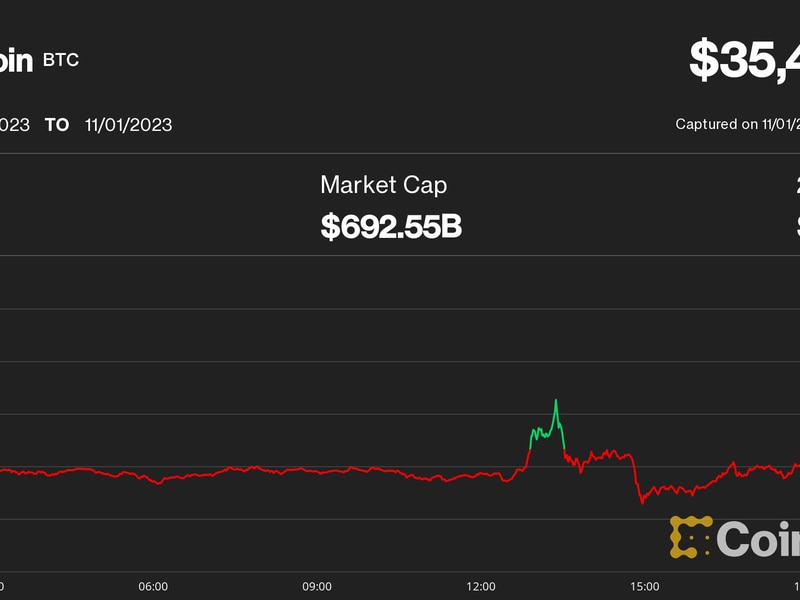Vitalik Buterin: Blockchains Will Discourage Monopolies, Not Create Them
Vitalik Buterin filmed during recording of Unchained Podcast. Credit: Christine Kim for CoinDesk.
Vitalik Buterin has called for lawmakers to be more accommodating to blockchain protocols, saying they can actually help antitrust agencies fight monopolies and anti-competitive behavior.
Together with Thibault Schrepel, an antitrust academic and Harvard faculty associate, the creator of Ethereum argued in a newly-published paper that blockchain and antitrust agencies “share a common goal” in stopping the overt centralization of economic clout. In another word: decentralization.
Titled: “Blockchain Code as Antitrust,” Buterin and Schrepel argue antitrust agencies promote decentralization by punishing anti-competitive behaviors to prevent “harmful concentrations,” similar to a blockchain that puts decentralization at its very core-layer of functioning.
But on a more pragmatic level, the report argues that allowing blockchains to flourish will actually benefit antitrust agencies. As anyone can transact on them, irrespective of location, they can create fairer environments in places where there is either ineffective or non-existent antitrust enforcement.
The paper, which was published Monday, argues that in the short term antitrust agencies – which include bodies such as the Fair Trade Commission (FTC) in the U.S. – should support initiatives like sandboxes, sanctified spaces where blockchains can grow and function with less regulatory oversight.
Speaking to CoinDesk, Schrepel elaborated this could include “not going after the potential anti-competitive practices of blockchains which are designed in a highly decentralized way” as well as “not regulating these blockchains too strictly (especially, not their key characteristics).”
In the long term, antitrust agencies could even try and help foster a new regulatory framework for the technology to operate within, including the legal sanctioning of things like sandboxes. The report says this could form part of a process of “re-conceptualization;” where regulators are directed “toward technological issues in exchange for not going after other anticompetitive practices.”
Disclosure Read More
The leader in blockchain news, CoinDesk is a media outlet that strives for the highest journalistic standards and abides by a strict set of editorial policies. CoinDesk is an independent operating subsidiary of Digital Currency Group, which invests in cryptocurrencies and blockchain startups.








